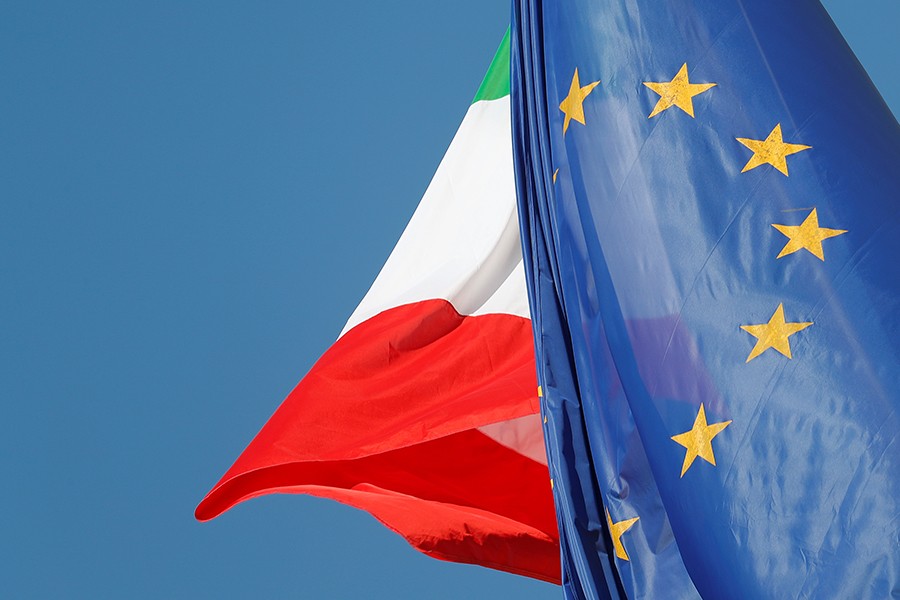The European Commission has told Italy to revise its budget for 2019, an unprecedented move with regard to an EU member state.
The Commission is worried about the impact of higher spending on already high levels of debt in Italy, the eurozone's third-biggest economy, according to a BBC report Wednesday.
Italy's governing populist parties have vowed to push ahead with campaign promises including a minimum income for the unemployed.
The country now has three weeks to submit a new, draft budget to Brussels.
The Commission said the first draft represented a "particularly serious non-compliance" with its recommendations.
The Commission Vice-President for the euro, Valdis Dombrovskis, said Italy's response to the commission's concerns was "not sufficient" to assuage fears - and the euro's rules were the same for everybody.
"This is the first Italian budget that the EU doesn't like," wrote Deputy Prime Minister Luigi Di Maio on Facebook. "No surprise: This is the first Italian budget written in Rome and not in Brussels!"
His co-deputy PM Matteo Salvini added: "This doesn't change anything."
"They're not attacking a government but a people. These are things that will anger Italians even more," he said.
Why does Italy want to spend more?
The new government has vowed to "end poverty" with a minimum income for the unemployed.
Other measures include tax cuts and scrapping extensions to the retirement age - fulfilling several key campaign promises from the election in March.
A defiant Prime Minister Giuseppe Conte insisted earlier that the budget deficit would go no higher than 2.4 per cent of GDP, although the target is three times than that of the previous government.
The government argues that servicing its debt of 131 per cent of national output - second only to bailed-out Greece - would hurt Italians, who have still not recovered from the decade-old financial crisis.
Italy's economy is still smaller than it was in 2008. The governing League and Five Star parties argue an increase in spending would kick-start growth.


